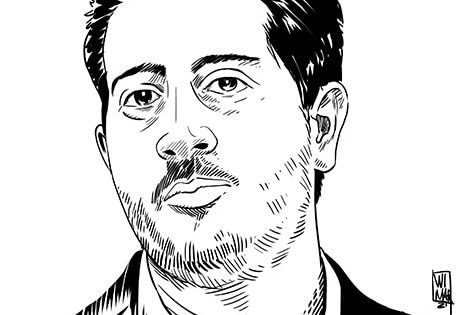(RSF/IFEX) – RSF has condemned the harsh jail conditions of Cuban journalists and dissidents and accused the authorities of setting them up for attack by fellow prisoners after journalist Adolfo Fernández Saínz was beaten unconscious by a cell mate. The protest came as imprisoned journalists and dissidents went on a one-day hunger strike to mark […]
(RSF/IFEX) – RSF has condemned the harsh jail conditions of Cuban journalists and dissidents and accused the authorities of setting them up for attack by fellow prisoners after journalist Adolfo Fernández Saínz was beaten unconscious by a cell mate.
The protest came as imprisoned journalists and dissidents went on a one-day hunger strike to mark International Human Rights Day on 10 December 2003 and draw attention to their plight.
RSF accused the government of deliberately transferring political prisoners to shared cells with common criminals to increase pressure on their families and on journalists who have not been imprisoned.
“These recent transfers by the prison authorities have not resulted in improved conditions for journalists and prisoners of conscience, who are already very weak after months of extremely harsh treatment and deprivation,” RSF Secretary-General Robert Ménard said. “Since they were locked up in shared cells with common criminals, they have been exposed to all kinds of violence from fellow prisoners, while continuing to suffer other hardships. The attack against Adolfo Fernández Saínz was exactly what the authorities were hoping to provoke,” he added.
On 6 December, Fernández Saínz was attacked when he went to the aid of another prisoner who was being beaten by a cell mate. Despite being warned off by the attacker, the journalist persisted. He was struck in the face and lost consciousness. He woke up in the infirmary with a serious eye injury. No action was taken against the prisoner who carried out the attack. According to his family, who say they fear for his life, the journalist said he does not intend to stop protesting in response to injustices he witnesses.
Jailed Cuban journalists and dissidents planned to fast on 10 December – International Human Rights Day – to demand the release of political prisoners and the democratisation of the Cuban regime. Among those planning to fast were journalists José Ubaldo Izquierdo Hernández and Normando Hernández González, held in the Kilo 5 1/2 prison in Pinar del Río, along with six other political prisoners. Also involved were Víctor Rolando Arroyo Carmona, Jorge Olivera Castillo and Omar Moíses Ruiz Hernández, jailed in Guantanamo provincial prison along with five other political prisoners.
The families of the prisoners announced that they too would fast for the day in solidarity with their jailed loved ones. Other journalists, independent librarians, human rights activists and members of social movements or political parties also planned to join the families in their fast, in prayers and in other ceremonies at their homes in Havana or other towns. Elsewhere, members of Cuba’s exiled opposition planned demonstrations in the United States, the Caribbean and Italy, to raise public awareness of the plight of political prisoners on the island.


